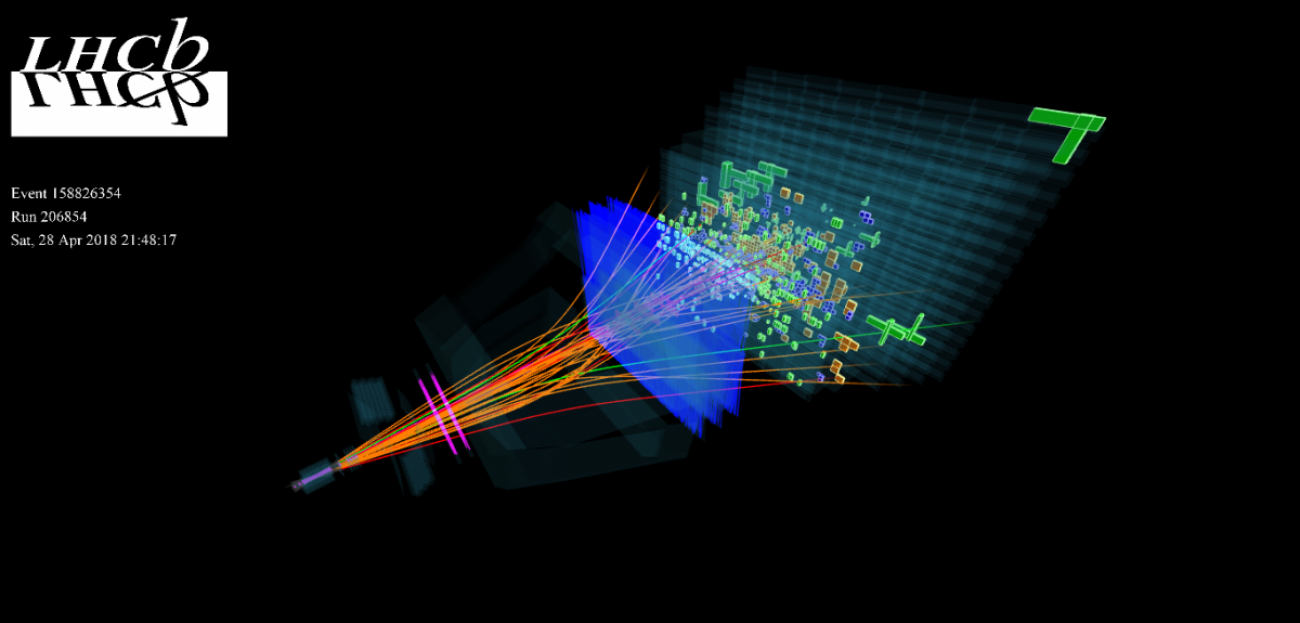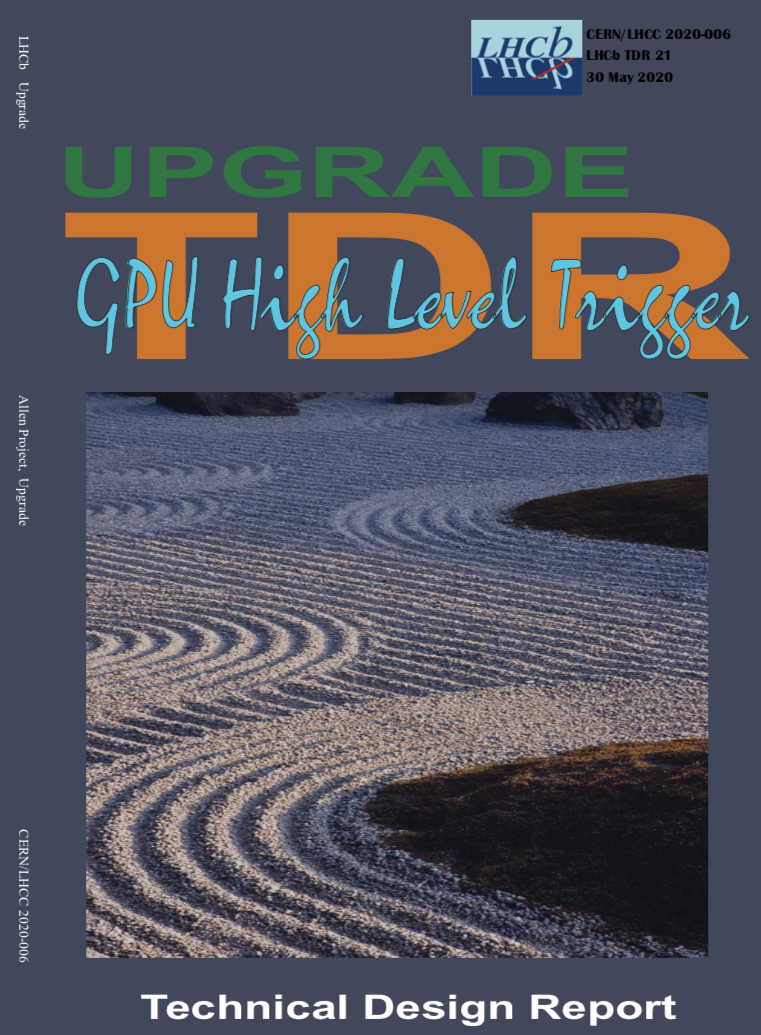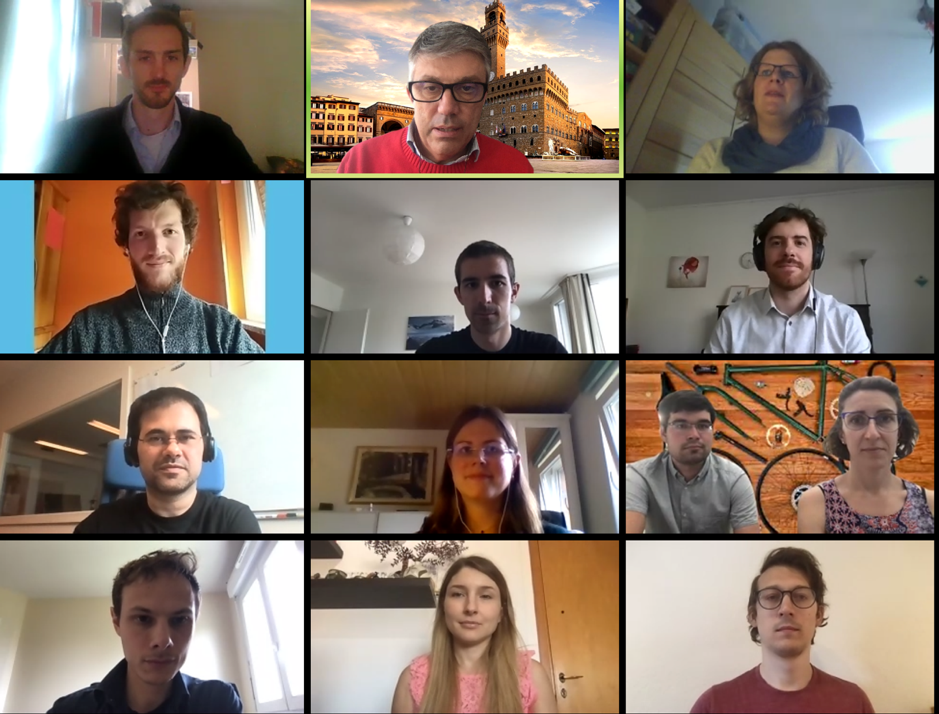LHCb adopts GPUs in Run 3 trigger

 The LHCb experiment is currently being upgraded to continue its study of beauty and charm hadrons at a five times higher instantaneous luminosity in LHC Run 3 that is now set to start in 2022. At the increased luminosity, these hadrons are produced so abundantly that selections based only on calorimeter or muon detector information are inefficient. Consequently, one major change in the LHCb upgrade is the readout of all sub-detectors at 30 MHz and a software-only trigger processing 40 Tbit/s, where charged particle track reconstruction is performed up front. Inclusive selections on the reconstructed objects allow the event rate to be reduced by a factor between 30 and 60 at the first trigger level, called HLT1.
The LHCb experiment is currently being upgraded to continue its study of beauty and charm hadrons at a five times higher instantaneous luminosity in LHC Run 3 that is now set to start in 2022. At the increased luminosity, these hadrons are produced so abundantly that selections based only on calorimeter or muon detector information are inefficient. Consequently, one major change in the LHCb upgrade is the readout of all sub-detectors at 30 MHz and a software-only trigger processing 40 Tbit/s, where charged particle track reconstruction is performed up front. Inclusive selections on the reconstructed objects allow the event rate to be reduced by a factor between 30 and 60 at the first trigger level, called HLT1.Following the technology decision, the focus has shifted to developing and commissioning the trigger system for Run 3.
Development and optimisation has continued during the technology review, resulting in increased performance and new opportunities to expand the reconstruction performed in the first stage of the software trigger. For example, improved calorimeter clustering and bremsstrahlung recovery are areas where spare processing capacity could be used to expand the physics reach of the system beyond what was originally envisaged.

Further Reading:
[1] https://arxiv.org/abs/1712.06982
[2] https://link.springer.com/article/10.1007/s41781-020-00039-7
[3] Allen TDR: http://cds.cern.ch/record/2717938?ln=en
LHCb honours its Thesis and Early Career Awards Winners
On 11 June, LHCb announced the winners of the 2020 PhD Thesis and Early Career Scientist Awards. The LHCb Thesis Awards recognize excellent PhD theses and additional work that have made an exceptional contribution to LHCb. In parallel, the Early Career Scientist prizes are awarded to recognize outstanding achievements of early career scientists to the benefit of LHCb.
This year’s winners of the Thesis prize are Philippe D'Argent (Heidelberg University) and Laurent Dufour (Nikhef/Groningen University. Carlos Abellan Beteta (Zurich), Claudia Bertella (CERN), Daniel Campora (Nikhef), Nadim Conti (INFN, Milan), Edgar Lemos Cid (Santiago de Compostela), Olli Lupton (Warwick), Mark Smith (Imperial College), Dorothea vom Bruch (LPNHE, Paris) were awarded the Early Career prize.

Left to right, top to bottom: Smith, Passaleva (LHCb Spokesperson), Hansmann-Menzenmer (Thesis Chair), Conti, Lupton, Campora, Abellan-Beteta, Vom Bruch, Lemos Cid, Bertella, Dufour, Dordei (Early Career Chair), D'Argent (Image: CERN).
“The number of brilliant winners of the Early Career Scientist prize and the extraordinary level of the PhD theses evaluated, show how crucial the contribution of younger colleagues to the experiment activities truly is”, point out Francesca Dordei and Stephanie Hansmann-Menzemer, Chairs of the Prize Committees. “It was really hard for the Committees to select only a few names among the many early career scientists and PhD students that not only contribute but often lead cutting edge developments in LHCb physics, detector and software developments”. Almost 350 PhD students study in the collaboration on diverse areas of LHCb physics, ranging from physics analysis to advanced detector and software developments.
Read more about this year's winners and their work on the LHCb public website: HERE
